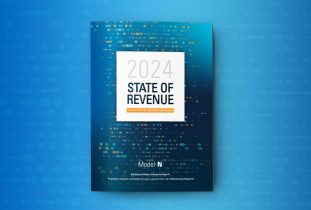With the U.S. exporting over $1.4 trillion in capital, consumer, and industrial products in 2020, many of these exports are manufactured and distributed by High Tech and Semiconductor companies.
On average, high-tech companies sell 40% or more of their products, with many pushing 80% through global indirect channels. While these partnerships aren’t new, the growing volume of managing, tracking, and monitoring sales and end customers are time-consuming and error-prone. Add to this how and when channel incentives and rebates are paid correctly and on time, and you have introduced new complexity and financial compliance challenges.
These challenges are exacerbated by the risks of selling and compensating for products to banned parties.
What is the Impact and Risk of Banned Parties?
Whether your company has innocently sold to or compensated a channel via an incentive or rebate for products, your company is at compliance risk. Failure to comply and conduct business with denied or banned parties can result in criminal or civil prosecution as well as denial of export privileges. Fines and export privileges have long-term financial consequences and unwanted company exposure.
A Real-World Example of Banned Parties
Recently, SAP, a global software company acknowledged violations of selling to banned parties. “In voluntary disclosures the company made to the three agencies, SAP acknowledged violations of the Export Administration Regulations and the Iranian Transactions and Sanctions Regulations. As a result of its voluntary disclosure to the Department of Justice (DOJ), extensive cooperation, and remediation costing more than $27 million, the United States Attorney’s Office for the District of Massachusetts and DOJ’s National Security Division entered into a Non-Prosecution Agreement with SAP. Pursuant to that agreement, SAP will disgorge $5.14 million of ill-gotten gain.”
What Can Be Done to Mitigate the Impact and Ensure Compliance?
Without internal processes, systems, and automated reviews in place for every channel sales transaction, you have a financial compliance impact. While government entities publish current Denied Party lists and information, your organization must own and monitor the lists of individuals or entities your channel sells to. So, where should you start? The U.S. Department of Commerce Bureau of Industry and Security provides Don’t Let This Happen to You. This publication reviews key things to consider and other real-world examples. Next, go to this government site where you can search and download for parties of concern and banned parties on a frequent basis.
To learn more about how Model N can support your banned party’s efforts in managing channel sales transactions and create a system of record, go here.
















